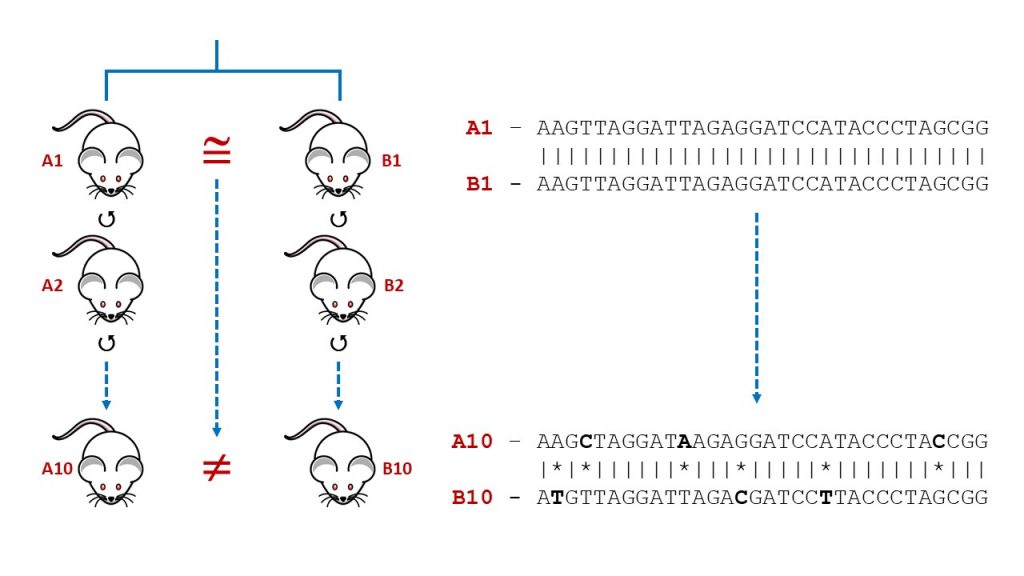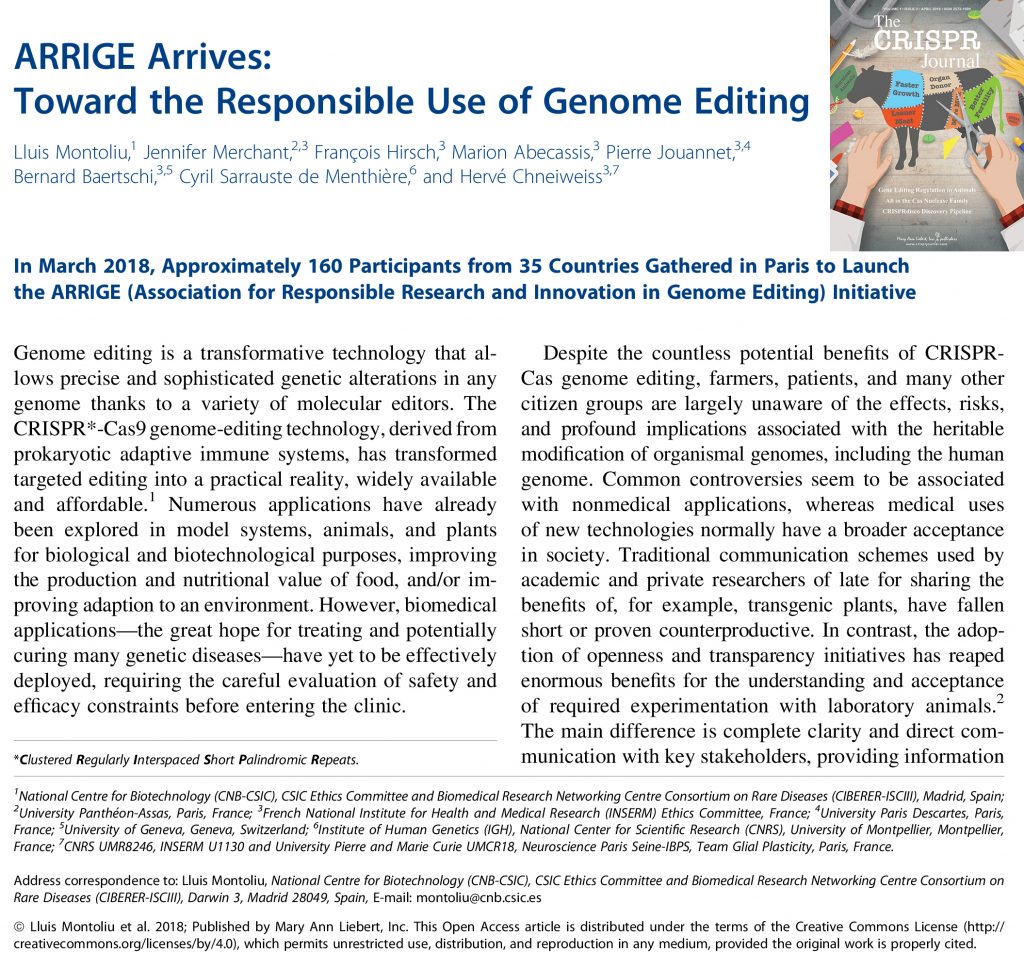Dear colleagues,
On behalf of the founding Board of the Association for Responsible Research and Innovation in Genome Editing (ARRIGE), I am most happy to announcethe launching of the ARRIGE membership registration. From today, April 1st, 2019, roughly one year after we held the ARRIGE kick-off meeting in Paris, we will be gladly accepting your requests to formally become a member of ARRIGE.
How to become a member of ARRIGE?
Registration Forms – They can be filed through the ARRIGE web site
Payment – After you fill your Registration Form (Step 1), you can pay your annual membership (in euros) (Step 2), via Paypal (using the form or directly with ARRIGE PayPal account at treasurer@arrige.org) or from your bank app by bank transfer (in such case please send an email to treasurer@arrige.org to be provided with bank details). Payment information can be found in this web site.
Why do we need ARRIGE?
- Because ARRIGE is the most international of all existing initiatives discussing the responsible use research and innovation of genome editing techniques around the world. In Paris we already gathered delegates from 42 countries, including African, South American and Asian delegates.
- Because we need to address the various and multidisciplinary issues related to or impacted by genome editing, not only focusing on human embryos. With ARRIGE, we extend the discussions to gene drives, intellectual property issues, GMO vs non-GMO, safety and security issues, biotechnological applications for agriculture and livestock, safe and efficient innovative gene therapies for patients, therapies vs enhancement, ethics issues, laws and regulations, etc…
- Because there is no satisfactory platform engaging all kinds of public – public engagement platform – which is involved in the field of genome editing. At ARRIGE, we believe that education and dissemination of reliable news on genome-editing for experts, but also for patients associations and the lay public is fundamental to allow for democratic debates in the context of the emergence of a technology that bears the potential to revolutionize many aspects of our societies. We would like to use the expertise of ARRIGE to develop/assist in developing public engagement projects.
- Consequently, we envisage the creation of expert multidisciplinary groups to tackle all these issues with input from all over the world, with the idea of creating genuine expertise and a real task force.
Why joining ARRIGE?
To be part of this initiative and be able to contribute with ideas, materials, guidelines, recommendations, protocols suitable for each one of the potential uses of genome editing, taking into account the views of all stakeholders. We will also plan to regularly organize meetings to discuss and progress in all these topics, and to help you to organize events on these topics locally. Forthcoming meetings are already planned in Paris November 2019 and Vienna January 2020.
ARRIGE members will be subscribed to a new email list (different from this one) and we will create spaces and resources for the efficient and operative discussion of all working groups.
Initial Categories of ARRIGE Members:
Individual (50 Euros/year)
Institutional (300 Euros/year, both for private and public institutions)
Useful Links & Information:
ARRIGE website
ARRIGE bylaws in French
ARRIGE bylaws in English
ARRIGE Founding Board and Scientific Committee
ARRIGE article at The CRISPR Journal
ARRIGE Founding Board:
President: Lluís Montoliu (Spain) | Vice-President: Hervé Chneiweiss (France) | General Secretary: François Hirsch (France) | Deputy General Secretary: Christine Lemaitre (France) | Treasurer: Cyril Sarrauste de Menthière (France) | Deputy Treasurer: Jennifer Merchant (France) | Legal Advisor: Marion Abecassis (France) | Board member: Bernard Baertschi (Switzerland)
ARRIGE Scientific Committee:
Janet Rossant (Canada), Matthew Porteus (USA), Stephen Ekker (USA), Lydia Teboul (UK), Bruce Whitelaw (UK), Tony Nolan (UK), Yann Herault (France), Gaetan Burgio (Australia), Jerome Amir Singh (Canada), Eleonore Pauwels (USA), Ayola Akim Adegnika (Gabon), Fabiana Arzuaga (Argentina), Mylène Botbol (Belgium), Pierre Jouannet (France), Amar Jesani (India), Josep Casacuberta (Spain), Martina Crispo (Uruguay) and Juraj Koppel (Slovakia)
Looking forward to receiving your requests for registration as members of ARRIGE.
With my best wishes and my appreciation for all your support,
Lluis Montoliu
ARRIGE Founding President, on behalf of the ARRIGE Founding Board





